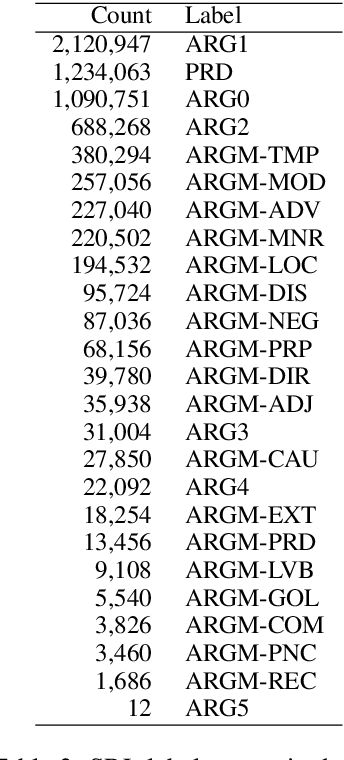Thematic fit bits: Annotation quality and quantity for event participant representation
Paper and Code
May 13, 2021



Modeling thematic fit (a verb--argument compositional semantics task) currently requires a very large burden of data. We take a high-performing neural approach to modeling verb--argument fit, previously trained on a linguistically machine-annotated large corpus, and replace corpus layers with output from higher-quality taggers. Contrary to popular beliefs that, in the deep learning era, more data is as effective as higher quality annotation, we discover that higher annotation quality dramatically reduces our data requirement while demonstrating better supervised predicate-argument classification. But in applying the model to a psycholinguistic task outside the training objective, we saw only small gains in one of two thematic fit estimation tasks, and none in the other. We replicate previous studies while modifying certain role representation details, and set a new state-of-the-art in event modeling, using a fraction of the data.
 Add to Chrome
Add to Chrome Add to Firefox
Add to Firefox Add to Edge
Add to Edge